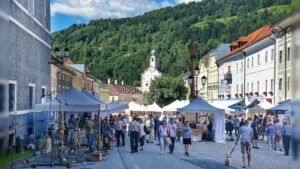Abstract/Description
The Alpine region is a major hotspot for biodiversity in Europe, shaped by various ecological regulation and conservation efforts. However, the institutionalized nature of these projects can overshadow or marginalize less formal practices and ways of living, especially when there is a lack of space to integrate diverse socio-ecological knowledge. In the Trentino Alps, the reintroduction of brown bears has led to systemic challenges for local communities. In the last decade, their attempts to have their concerns recognized have often been met with resistance from wildlife scientists and conservation authorities, leaving them feeling powerless and abandoned.
In this context, anthropology-driven transdisciplinary research offers a promising approach. It not only uncovers the complex social, political, and economic processes that stem from conservation policies but also fosters dialogue and collaboration between local actors and stakeholders. Drawing on an ongoing participatory research project on human-wildlife coexistence in the Adamello Brenta Nature Park (Trentino Alps), this paper presents a method that uses ethnographic knowledge to imagine new, unconventional practices of knowledge integration and challenge existing social and professional boundaries.
The research has demonstrated that through focus groups, regular meetings, and data sharing, researchers and stakeholders can form a shared epistemic community, working together to create a more just and inclusive approach to wildlife conservation governance. Guided by anthropological insights, experimental, multi-actor collaborations and partnerships offer a promising space to bridge conservation science and policies with local, informal knowledge and practices.


